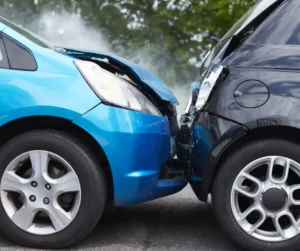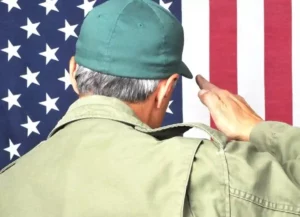A little over a month after the Food and Drug Administration (FDA) issued a warning to e-cigarette companies over the teen vaping crisis, the agency says it has had constructive conversations with the companies about reducing teen e-cigarette use. The FDA had instructed the five major manufacturers of e-cigarettes to come up with proposals for combating teen vaping, which has become a major problem in recent years. Those companies are Juul, British American Tobacco’s Vuse, Altria’s MarkTen, Imperial Brand’s Blu E-cigs and Japan Tobacco’s Logic.
FDA commissioner Scott Gottlieb has met with executives from each of the companies since the warning was issued. He has reported that each company presented thoughtful proposals, and the FDA is supporting the companies’ voluntary actions to curb teen e-cigarette use. The agency has not yet stated what regulatory actions will be taken, but has maintained that all options are on the table. They have mentioned that they may restrict sales of e-cigarette liquid flavors, so that they are only sold at shops with thorough age checks. It is also possible the agency could pull products from the market that are particularly appealing to young people, until the products can be reviewed and approved.
What Are E-Cigarette Companies Doing About the Problem?
For now, e-cigarette companies are taking their own steps to help curb the teen vaping crisis. Reynolds American says it will begin penalizing retailers who sell their products to minors. The company also plans to improve its online sales practices to prevent teens from purchasing their products online.
Altria has announced that it is pulling its MarkTen pod-based e-cigarette products from the market until they can be reviewed by the FDA. They will also halt all sales of e-cigarette flavors except for menthol and tobacco flavors for their MarkTen Original products, which are e-cigarettes designed to look like traditional cigarettes. The company’s pod-based products look much more like other common e-cigarette devices.
Altria also supports raising the legal age for purchasing tobacco from 18 to 21. Juul, which controls a majority of the e-cigarette market, also supports this effort, and requires online shoppers to be at least 21 years old to purchase products. Juul executives are reportedly working on completing their proposal for the FDA, based on feedback they received from the agency.
How Serious is the Teen Vaping Crisis?
With the popular pro-vaping talk tract being that these devices are safer than traditional cigarettes, how serious is the problem of teen vaping? For one, it’s serious enough that the FDA considers it an epidemic.
According to federal data, the number of high school students who used e-cigarettes grew 77% this year. And research is now showing that teens who vape are actually more likely to start smoking real cigarettes—not less. According to a report by The Rand Corp., teens who vape are more likely to smoke cigarettes. They are also more likely to increase their use of both e-cigarettes and traditional cigarettes over time. Whereas adults who have developed a nicotine addiction by smoking cigarettes may be able to use e-cigarettes to help themselves quit, young people using e-cigarettes are not getting this benefit. Instead, for many teens, e-cigarettes are their first exposure to nicotine. They can then develop the addiction to nicotine, which can lead to smoking traditional cigarettes.
Teen cigarette use peaked in 1997, when roughly 35% of high schoolers were smoking cigarettes. That rate has been on a steep decline since then—that is, until last year. In 2016, 7.6% of high school kids said they smoked cigarettes. In 2017, that number rose to 8.1%. It’s not a huge jump, but it is still cause for concern, considering that teens are more likely to smoke cigarettes after using e-cigarettes. With the huge jump in teen e-cigarette use this year, a more significant increase in teen smoking could be coming.
Aside from these concerns are the concerns about the health and safety issues with e-cigarettes themselves. Studies have shown that the vapor from e-cigarettes can put a person at increased risk for pneumonia. Another recent study shows that e-cigarette flavoring liquids can produce toxic vapors. Additionally, there have been a slew of cases in which e-cigarette batteries have exploded, injuring consumers.
“We’re glad these companies are now working to curb the teen vaping crisis, which has clearly gotten out of control,” said Attorney Walter Clark, founder of Walter Clark Legal Group.
Our firm has been handling personal injury cases throughout the California Low Desert and High Desert communities for over 30 years. With a 95% success rate, the California personal injury attorneys at Walter Clark Legal Group will fight to hold those responsible for your loss accountable and win compensation to cover medical bills, lost wages, and pain and suffering. If you have been injured by a defective product and want to discuss your legal options, contact us today for a free consultation with an experienced personal injury lawyer. We have offices in Indio, Rancho Mirage, Victorville, El Centro, and Yucca Valley, and represent clients through the entire California Low Desert and High Desert communities.
DISCLAIMER: The Walter Clark Legal Group blog is intended for general information purposes only and is not intended as legal or medical advice. References to laws are based on general legal practices and vary by location. Information reported comes from secondary news sources. We do handle these types of cases, but whether or not the individuals and/or loved ones involved in these accidents choose to be represented by a law firm is a personal choice we respect. Should you find any of the information incorrect, we welcome you to contact us with corrections.
- What To Do If You Have Been Injured At A Concert In California? Mar 27,2024
- Walter Clark Legal Group Reimburses Thanksgiving Ride Fares Nov 14,2023
- Walter Clark Legal Group Donates Backpacks to Booker T. Washington Elementary School Aug 22,2023
- Walter Clark Legal Group Donates Backpacks to Underserved Students Aug 22,2023
- Walter Clark Legal Group Reimburses Labor Day Ride Fares Aug 21,2023
- 2023 Safe Ride Home Program Jun 21,2023





















